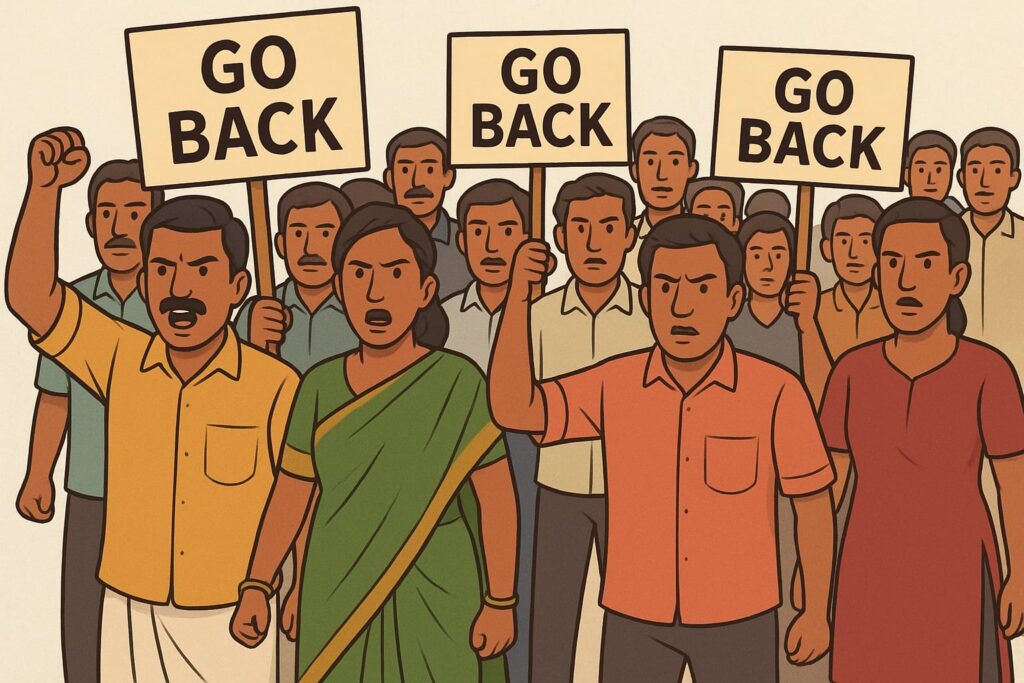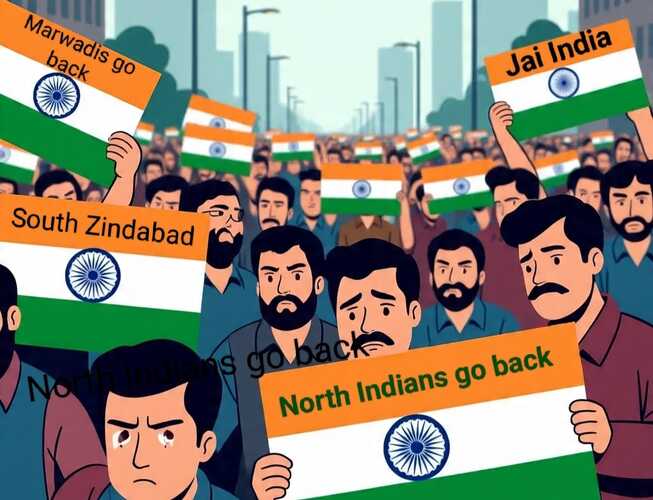Article Today, Hyderabad:
Resentment against what many describe as ‘northern dominance’ is gaining strength across the southern states. Businesses owned by traders from North India have spread rapidly, leading to a steady outflow of capital. Activists argue that this is creating economic, political, social, and cultural imbalances. In Telangana, the ‘Marwadi Go Back’ campaign has gathered momentum. In Rangareddy district, traders in Amanagallu have called for a bandh. Associations of kirana, textile, and jewellery shops have urged members to close shops voluntarily in support.
Migration Fuels Economic Tensions
According to estimates, nearly five crore people from North India have migrated to southern states. Cities like Hyderabad, Bengaluru, and Chennai have emerged as hubs for these communities. From small street vendors to large-scale retail chains and real estate, their footprint is visible everywhere. In Chennai, Gujarati and Rajasthani traders dominate the textile and food markets. In Bengaluru, northern entrepreneurs and employees are competing in the IT sector. In Hyderabad, local business groups allege that traditional Vaishya markets are increasingly controlled by northern traders.

Spread into Rural Areas
The presence of migrants is not limited to urban centres. Large numbers of agricultural workers from Bihar and Uttar Pradesh are employed in paddy and cotton fields in Andhra Pradesh and Telangana. Willing to work for lower wages, they have become rivals to local farm labour. This has led to frustration among sections of the rural workforce, who feel they are being displaced in their own regions.
Political Imbalance at the Centre
Southern leaders argue that political representation is skewed in favour of northern states. Uttar Pradesh alone sends 80 MPs to the Lok Sabha, while Bihar has 40. In comparison, Tamil Nadu has 39 and Andhra Pradesh only 25. This numerical advantage gives the North a stronger say in central decision-making. With delimitation due in 2026, fears are growing that the gap will widen further, diminishing the voice of the South in Parliament.
Unequal Flow of Tax Revenues
Economic experts highlight another imbalance. Southern states contribute far more in taxes to the Union government than they receive in return. In the last five years, the South contributed nearly Rs. 22 lakh crore, but received only about Rs. 6 lakh crore in central funds. Tamil Nadu, which paid over Rs. 1.2 lakh crore last year, got back only Rs. 40,000 crore. Karnataka contributed Rs. 1 lakh crore and received Rs. 30,000 crore. Andhra Pradesh, Telangana, and Kerala report similar disparities. Leaders argue that the South is subsidising the North, while its own development needs remain unmet.

Call for Resistance Grows Louder
Amid these grievances, the South Sena has called for collective resistance. Its leaders—Ravi, Srinivas, Ramesh, and Jagadish—demand that northern migrants, including Marwari traders, leave the South. They extended support to the Amanagallu bandh, insisting that the movement is a response to decades of neglect and exploitation. Whether this agitation will remain localised or spread further across the southern states remains to be seen.



